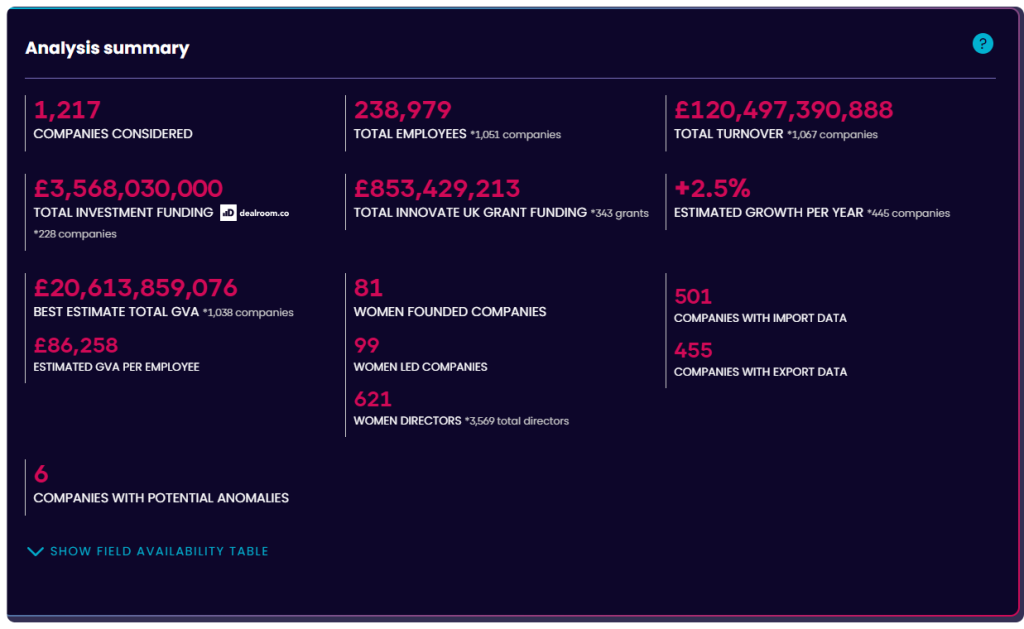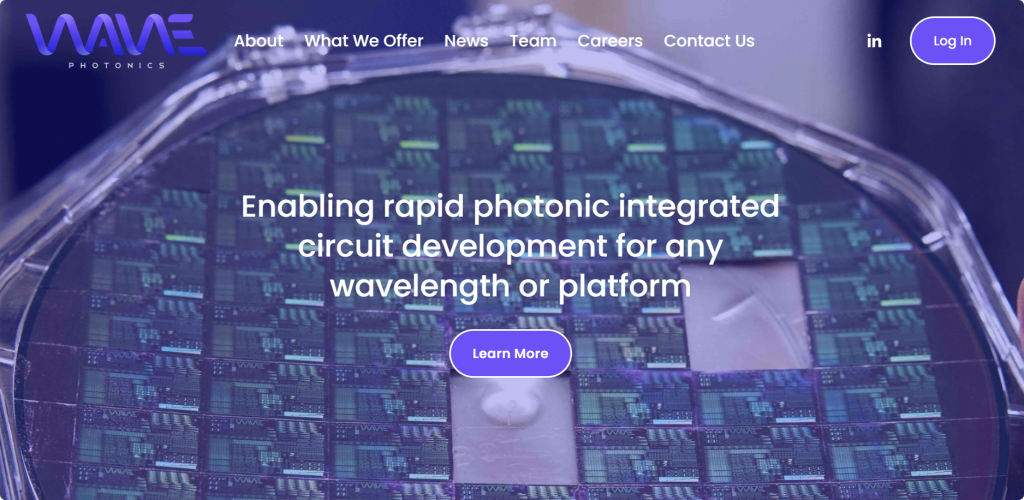We’ve built the UK’s most detailed map of the semiconductors industry – revealing the true shape, size, and strength of this sector.
From the smartphones in our pockets to the satellites orbiting above us, semiconductors power the modern world. They’re at the core of national resilience, economic growth, and technological innovation. Yet until now, no dataset has offered a real-time, accurate view of the companies driving this space.
We’ve identified and analysed over 1,200 companies involved in the UK’s semiconductor industry – creating a new Real-time Industrial Classification (RTIC) to track sector activity, jobs, investment, and growth potential.
This RTIC is now live on our platform. Here’s what we found.
What does the Semiconductors RTIC include?
The Semiconductors RTIC maps the companies involved in the research, design, manufacture, and supply of semiconductor components and systems across the UK.
This RTIC focuses on businesses with a physical UK presence that are active across the semiconductor value chain, from wafer fabrication and advanced materials to chip design, testing, packaging, and associated services.
This RTIC goes beyond the constraints of outdated classification systems like SIC codes, which fail to reflect the complexity and pace of this high-tech sector. Instead, it uses machine learning, website analysis, and expert input to dynamically classify and track companies in real time.
Want to explore companies working more broadly across electronics? You can also look at our Electronics Manufacturing RTIC.

Insights from the RTIC
The UK’s Semiconductors sector comprises 1,217 companies employing nearly 239,000 people and generating over £120.5 billion in turnover.
With an estimated annual growth rate of 2.5%, the sector has attracted £3.6 billion in investment funding and secured £853 million in Innovate UK grants.
It contributes an estimated £20.6 billion in GVA and includes 81 women-founded and 99 women-led businesses.
Trade is a key feature, with 455 exporters and 501 importers, while major industry hubs include Cambridge, South Gloucestershire, Westminster, and Edinburgh.

From industry giants like BAE Systems and QinetiQ to high-growth startups in graphene, sensors, and IoT – This sector is a critical pillar of the UK’s tech infrastructure and innovation pipeline.
A highly skilled, innovation-led sector
With our Lightcast feature, you can access jobs & skills data, here’s a peek of what the semiconductor industry labour market looks like:
- 124,000+ job postings in the last two years
- Median salary: £44,185
- Top roles include programmers, engineers, cybersecurity specialists, and network professionals
Are you interested in seeing more jobs & skills data? Have a look at our Lightcast upgrade.
Notable Semiconductor companies
Wave Photonics
Wave Photonics is a company that develops design technology to facilitate the creation, large-scale production, and adoption of integrated photonic circuits.
They are a small, innovative company with a strong growth trajectory, estimating an annual growth rate of 216% in both employees and overall expansion.
Although turnover figures aren’t available, the company has raised approximately £7.59 million in total funding through spinout, seed, grant, and early-stage VC rounds – featuring notable backers like the University of Cambridge, Plug and Play, and the European Innovation Council.
The company has received multiple Innovate UK grants, with at least six projects funded since 2021, including work on quantum photonics, DIY quantum key distribution (QKD) platforms, and integrated photonics packaging.

Blueshift Memory
Blueshift Memory has developed the Cambridge Architecture, a proprietary chip design that enhances memory access speeds by up to 1,000 times for data-intensive applications such as high-performance computing, artificial intelligence, augmented and virtual reality, 5G edge connectivity, and the Internet of Things.
Blueshift Memory is a micro-sized company experiencing steady expansion, with an estimated annual growth rate of 73.2% in both employee numbers and overall operations. Over the past three years, it has secured around £1.64 million in funding, including a £340,000 Innovate UK grant and £1.3 million from early-stage VC firm Silicon Catalyst.
Although turnover data is unavailable and it’s not classified as an OECD scaleup, the company has received consistent support for R&D – particularly for projects applying its novel memory architecture to AI, IoT, and high-performance computing use cases.

A new standard in industrial classification
At The Data City, we are redefining how emerging industries are mapped. With over 400 RTICs available, our platform provides real-time insights into the UK’s most dynamic sectors.
The Semiconductors RTIC offers fresh intelligence for researchers, policymakers, and investors.
The Semiconductors RTIC is now live on our platform and available to all Data City users.
Want to explore the data? Sign up for a free trial today!
Please note: The data from The Data City is accurate at the time the article was written but may change over time due to the dynamic, real-time nature of our data. For the latest insights, visit our platform.


